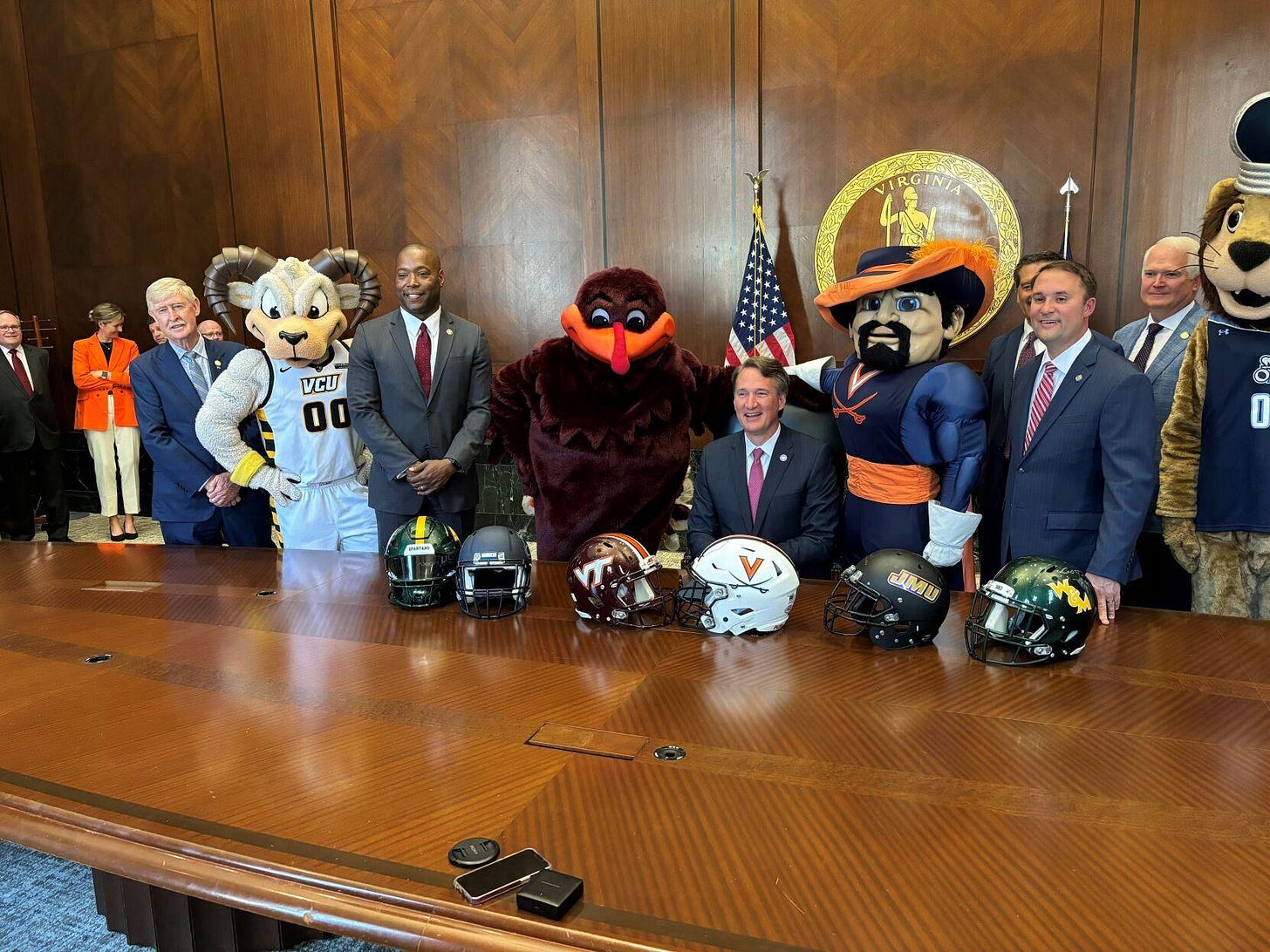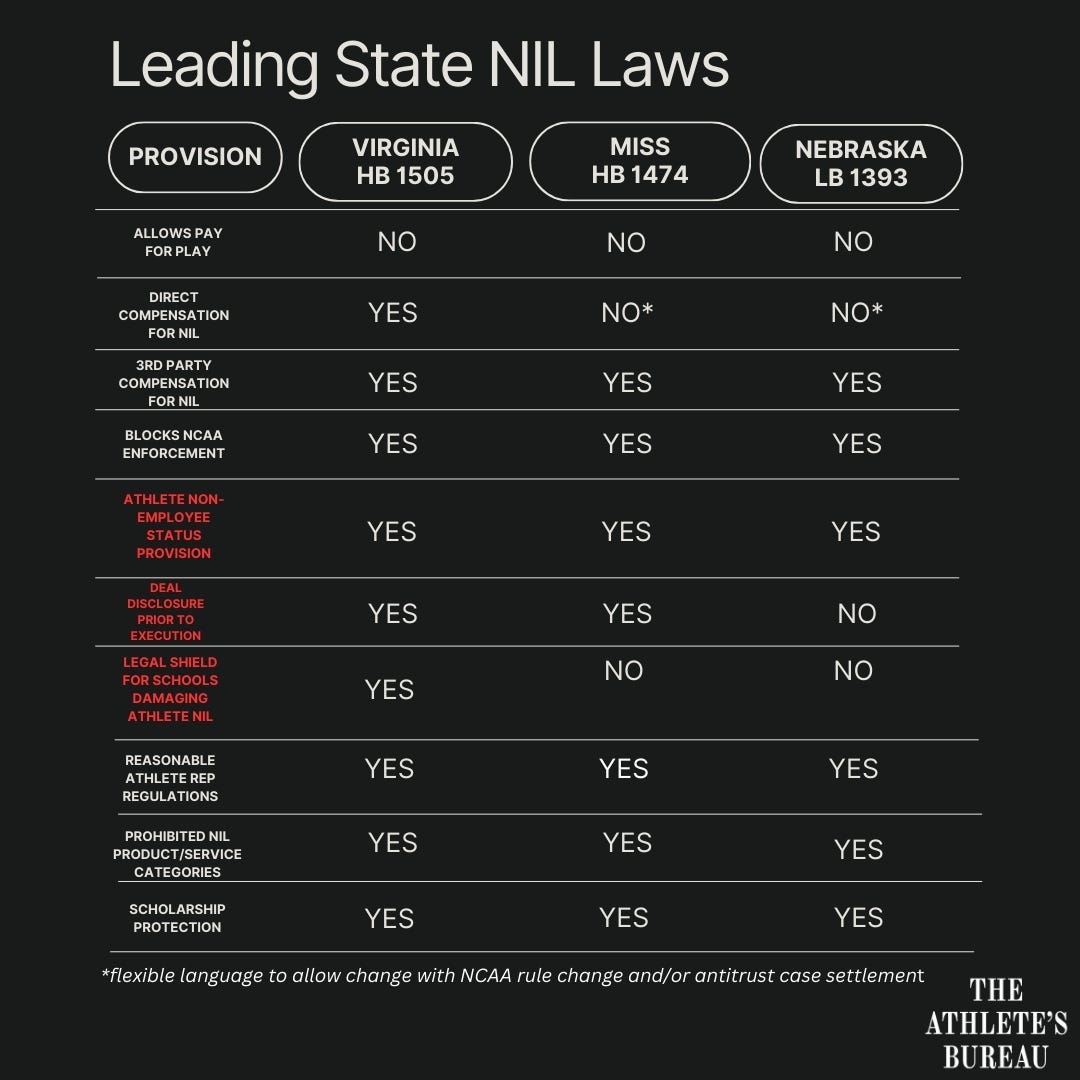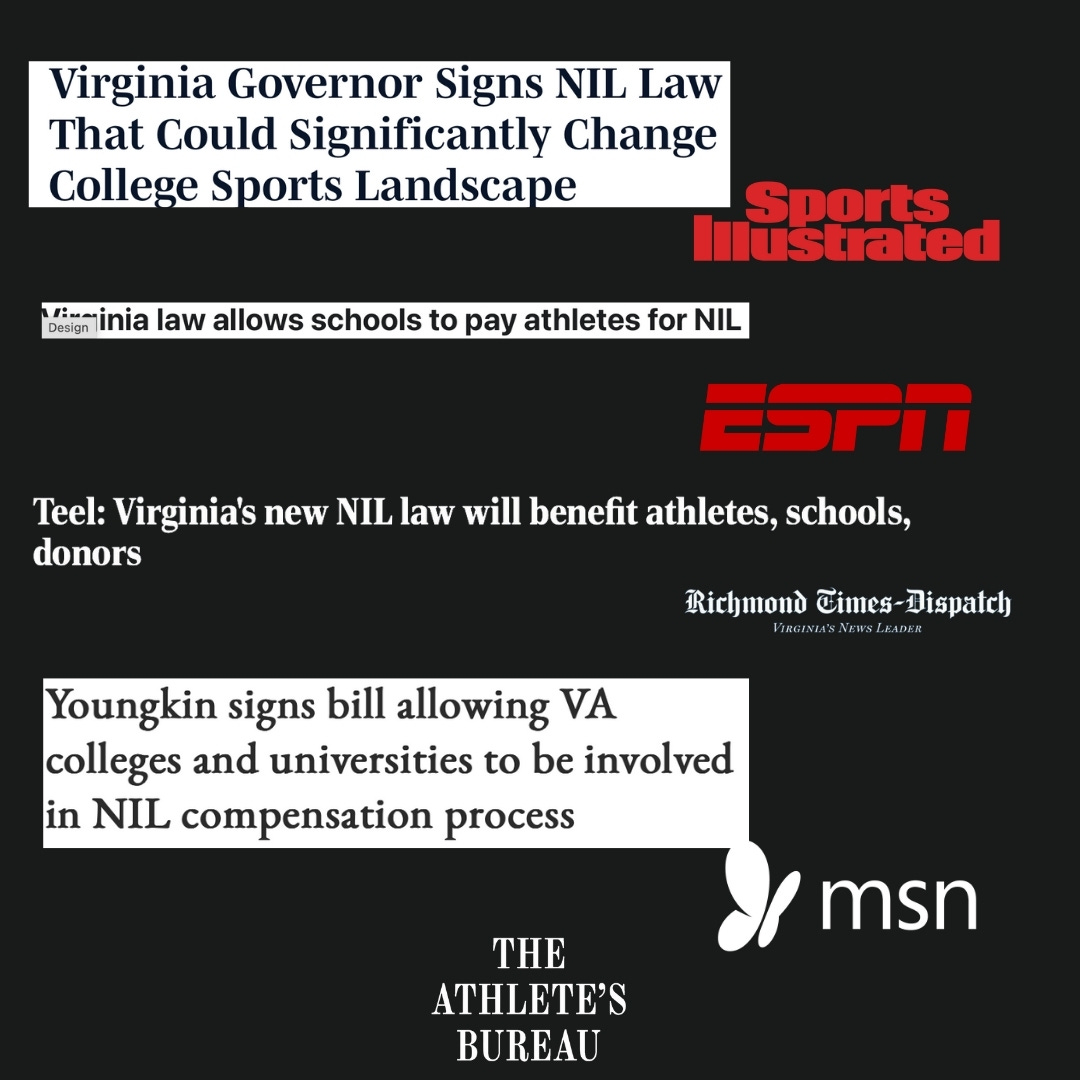States Are Leading the Way in Athlete Compensation
New Virginia Law Allows Direct Athlete Compensation for NIL - effective July 1, 2024
By Dylan Barbee (Missouri ‘26)
Virginia has passed HB 1505. This is the first bill to be passed by a state that aims to prevent punishment from institutions and the NCAA when college athletes earn direct compensation from schools for NIL.
The new law is expected to take effect on July 1 and could possibly give universities in the state of Virginia an advantage when recruiting athletes to come play for their athletic departments. Colleges will be allowed to directly pay college athletes for their NIL and the law prohibits the NCAA from punishing Virginia universities for doing so.

The bill was sponsored by delegate Terry Austin who has been working closely on NIL legislation with Senator Aaron Rouse. The Virginia General Assembly enacted the bill and it was signed on April 18th, 2024 by Virginia governor Glenn Youngkin.
“Today, we took an important step on NIL agreements in Virginia, signing legislation to make Virginia a more competitive place for student athletes,” Gov. Youngkin said on his Twitter, “We’re empowering our colleges and universities and enabling these athletes to fully benefit from their God-given talents.”
The bill states that each university in Virginia must develop their own policies when governing NIL compensation for their athletes. College athletes are not considered employees of the school meaning that they are not being paid for their performance in games but solely based on the marketing campaigns they are involved in.
Virginia college athletes must gain permission from their university to use their facilities and display their logos for any opportunity to earn compensation from NIL while they are playing at the college and involved in endorsements.
Although Title IX states that both men and women athletes are provided equal opportunities from institutions, specifically when given the same amount of money through scholarships, it is still not clear on whether schools will give the same amount for endorsement and marketing deals.
Institutions are banned from impeding on the NIL compensation student-athletes earn through endorsement deals. Tactics such as ruling them ineligible for games, reducing scholarship opportunities or preventing student-athletes from hiring lawyers to assist them with marketing campaign matters are stated to be illegal.
However, compensation could be prohibited for NIL if a student-athlete has any connections to cannabis, alcohol, performance enhancement drugs or gambling while playing for an institution's team.
The signing of this Virginia bill sets a precedent when advocating for college-athletes capitalizing on their own name, image and likeness and further reforms against the NCAA. The significance behind this bill is that it could cause other states to take the same steps, causing institutions and the NCAA’s relationship to adapt to other agreed upon policies in the future.
This bill allows college-athletes from a range of different backgrounds to have the opportunity to benefit financially for their NIL. If other states choose to go in the same direction, college recruiting efforts and college athlete’s representation will significantly be altered.
Ultimately, this will cause a national reform effort against the NCAA’s current policies and regulations as well as evolve the rights and opportunities accessible to college-athletes in today’s era of college competitive sports.
Dylan Barbee is a second-year Journalism major at the University of Missouri. His previous bylines include articles in The Statesman, The Maneater, and MoMuNo.







